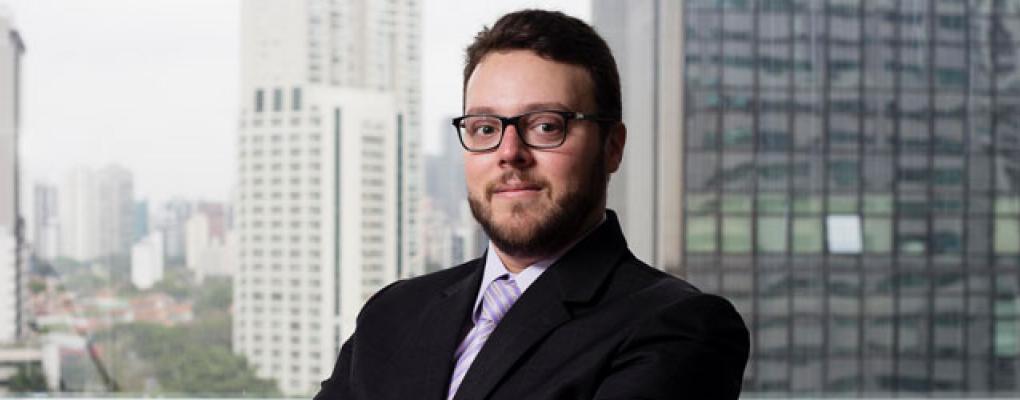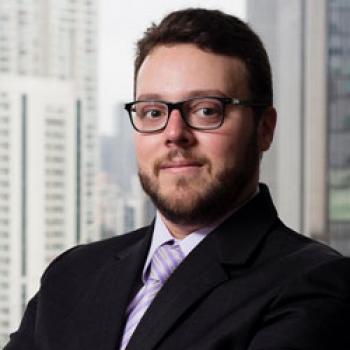
1. What first prompted you to a career in public private partnerships?
I've had my first contact with PPPs in Law school in my freshman year. Then, I ended up starting an internship program at Dal Pozzo Law Firm, where I still work, and had the opportunity to work in the structuring and drafting of one of the very first PPP contracts in the basic sanitation sector in the country in the city of Rio Claro. This PPP contract is still in effect and already delivering top quality public service.
2. Can you give us a background on your (PPP) job role emphasising on the PPP sector that it is related to?
I've been working with PPPs since 2006, when I worked in the structuring and drafting of Rio Claro PPP (see previous answer). I also work with legal contract management of several toll road and other basic sanitation user-pays PPPs since 2009, public transportation user-pays PPPs since 2013. I have also been part of the team that was responsible for translating the PPP Guide Chapter 1 into Brazilian Portuguese.
3. What prompted you to get certified, how did you hear about APMG’s PPP certification program?
I heard about the Guide in early 2017 and, after reading it, I realized that getting certified would be a great step. Therefore, I took my exam in December 2017.
4. Take us through your thought process while deciding to get certified.
When I read the guide and saw the incredible effort turned reality by all those renowned professionals led by Andrés Rebollo, I decided that it would make total sense to get certified, because the Guide is a state-of-the-art body of knowledge. Also, other professions, such as project managers, have had certifications for a long time and it adds a lot of value to the holder’s expertise. I believe so much in the Guide that I proposed the translation effort to APMGs ATO in Brazil, Radar PPP, when I took the course for Foundation. It took nearly fourteen months until it was released in Brazilian Portuguese considering all steps of the process, but it was incredibly worth the effort. I also decided to join the team of accredited trainers in Brazil. My accreditation was issued in April 25th, 2019.
5. Why did you chose APMG’s PPP certification program and how did it help? You could include some details regarding the PPP Certification Guide that was a fundamental reference material for this certification.
I chose it because, to the extent of my knowledge, there is no similar certification in the world. If we add the fact that is was backed by the greatest Multilateral Banks in the world and it turns out to be an easy decision. The guide is incredibly sharp when it comes to concepts. Take the PPP concept for instance: a long term contract between a public and a private entity with significant risk transfer in order to develop (or significantly improve our rebuild) an infrastructure asset where the private party provides significant part of the finance and payments are significantly linked to performance in order to keep the alignment of interests. It comprises all essential features and proves how deep is the knowledge put into building it. The entire Guide presents solid concepts and presents best practices with excellent examples.
6. What are your key strengths and how have you used them in your current PPP role?
My main skill is related to drafting main documents such as the PPP contract, but my main role nowadays is liaising with clients, MoS of them SPVs in charge of executing PPP contracts, to analyse and evaluate legal and regulatory risks and helping them to make the best possible corporate decision on how to face them.
7. What factors of your role as a PPP practitioner are easy? You could use an example here to explain about it.
I sincerely don't think there's anything easy in PPP practice, especially in Brazil where legal stability is always hanging on the balance. But among PPP factors, maybe the ones less difficult or complex could be the monitoring of media, that is something that has lots of interesting tools for tracking news and social media posts. The hard part is how to assess them and respond properly in the shortest possible notice.
8. What characteristics and skills do you think make a better PPP professional or a successful one?
Resilience is the most important thing: dealing with PPPs demands a lot of dedication and time since projects are complex and take a lot of time to come to light. It is also needed to understand practices from multiple areas of expertise comprising finance, technical, economical, legal and social, political and environmental aspects. In that case, curiosity and eagerness to learn are a must.
9. What is next in line for you, how are you planning to utilize the knowledge gathered from doing the Foundation and Preparation exams of this PPP Certification Program?
I intend to further develop my skills to take on the Execution Exam and keep on taking new challenges in the PPP market. I also intend to prepare myself to become an accredited trainer for Preparation and, when certified, Execution Levels.
10. What is your advice for newcomers or other PPP practitioners on helping deliver successful projects in the PPP world?
Be resilient, curious and eager to learn.


